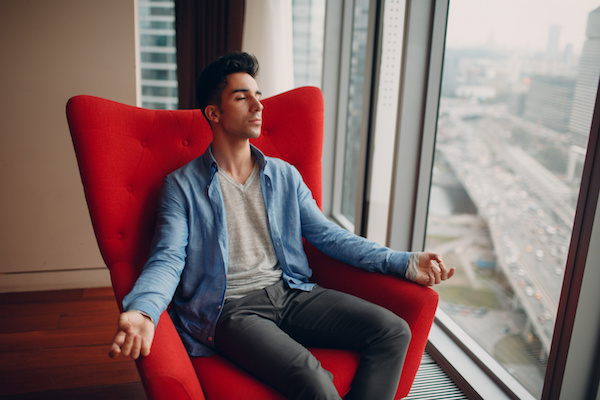Global precautions are encouraging each person to stay home when possible and stay six feet away from others when going out. Social distancing impacts each individual differently. For many, face-to-face interactions with loved ones improve mood and provide an enjoyable medium for passing time. Many familiar social opportunities are presently unavailable. The lack of such interactions can lead to increased stress and anxiety. Below are a few ways to stay calm and manage anxiety while practicing social distancing.
Exercise. Studies show that regular exercise is an effective tool for lowering anxiety, boosting energy, and improving sleep. Exercise can resolve the physical symptoms of high stress levels. Pairing exercise with the right sounds (e.g. encouraging music or relaxation playlists) can be doubly effective in relieving physical and emotional symptoms. While gyms may be closed, many offer in-home workouts, available online. Walking or stretching can be used as lower-impact forms of exercise.
Practice self-care. Making time for yourself is not only enjoyable, it’s imperative. Work and worry begin as soon as the alarm clock sounds each morning and continue late into the evening, often invading dreams. Scheduling “me time” each day provides a much-needed break from deadlines and other disturbances, allowing the mind to rest and rejuvenate before the next bombardment of tasks. Self-care can include indulgences such as a favorite meal or bubble bath, or it can be directed at self-improvement projects such as reading a book or learning an instrument.
Reach out. A strong social support system is proven to be one of the best safeguards an individual can have against anxiety. Relying on others can help in accomplishing tasks as well as providing a sense of hope. Social distancing has changed the process somewhat, but friends and family are still accessible. A phone call or internet video call can help maintain a supportive relationship with loved ones. Additionally, mental health professionals offer flexible types of services during times of social distancing, including video conferencing.
Each person who practices social distancing is faced with a unique set of challenges. Limited interaction may lead some to experience symptoms of anxiety or nervousness. For those individuals, the above steps can be taken to maintain mental and emotional health. Exercise, self-care, and reaching out can help manage anxiety, and calm nervousness. Individual counseling can also help you cope with social isolation. Reach out to A Caring Approach for holistic counseling services or find additional coping strategies on our blog.

